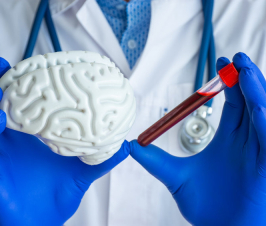Node Smith, ND
Everyone wants a healthy brain!
Recent research supports eating nuts on a regular basis for this effect. It looked at how nuts may affect brainwave activity. The study found that eating nuts regularly strengthened brain frequencies associated with healing, learning, memory and cognition. The scientists saw that eating certain nuts stimulated certain brainwaves. For instance, pistachios produced a greater gamma wave response – gamma waves occur during cognitive processing, information retention, and REM sleep. Peanuts, on the other hand, produced a high delta wave response – delta waves are associated with a healthy immune system, natural healing and deep sleep.
Nuts are Known to be High in Antioxidants and Fatty Acids
Six different kinds of nuts were studied: almonds, cashews, peanuts, pecans, pistachios and walnuts. Peanuts are technically a legume, though they were included in the study. Nuts are known to be high in antioxidants and fatty acids, both elements that contribute to their known health benefits. Past studies have been favorable in demonstrating nuts’ ability to protect the heart, fight cancer, reduce inflammation, and slow the aging process. This research supports that nuts are likely beneficial at maintaining brain health as well.
The Brain is Approximately 60% Fat
The likely reason is the high fatty acid content in nuts. A key part of a healthy brain is the consumption of healthy fats and oils through diet. The brain is approximately 60 percent fat, and needs certain essential fatty acids to function optimally. This fat helps insulate the electrical activity of the brain. Many of the brain’s neurons are encased in a fatty acid substance called, myelin.
Nuts Offer a Rich Source of Vitamins and Minerals
Nuts are also a rich source of vitamins and minerals, which act as cofactors for many cellular processes in the body and brain. Eating nuts on a regular basis may help more than just brain health. It is important to keep in mind that nuts may also be sources of heavy metal contamination and pesticides, depending on where they are grown and how they are processed. Choosing organically grown sources is preferable
Image Copyright: <a href=’https://www.123rf.com/profile_IKO’>IKO / 123RF Stock Photo</a>
 Node Smith, ND, is a naturopathic physician in Portland, OR and associate editor for NDNR. He has been instrumental in maintaining a firm connection to the philosophy and heritage of naturopathic medicine among the next generation of docs. He helped found the first multi-generational experiential retreat, which brings elders, alumni, and students together for a weekend camp-out where naturopathic medicine and medical philosophy are experienced in nature. Four years ago he helped found the non-profit, Association for Naturopathic ReVitalization (ANR), for which he serves as the board chairman. ANR has a mission to inspire health practitioners to embody the naturopathic principles through experiential education. Node also has a firm belief that the next era of naturopathic medicine will see a resurgence of in-patient facilities which use fasting, earthing, hydrotherapy and homeopathy to bring people back from chronic diseases of modern living; he is involved in numerous conversations and projects to bring about this vision.
Node Smith, ND, is a naturopathic physician in Portland, OR and associate editor for NDNR. He has been instrumental in maintaining a firm connection to the philosophy and heritage of naturopathic medicine among the next generation of docs. He helped found the first multi-generational experiential retreat, which brings elders, alumni, and students together for a weekend camp-out where naturopathic medicine and medical philosophy are experienced in nature. Four years ago he helped found the non-profit, Association for Naturopathic ReVitalization (ANR), for which he serves as the board chairman. ANR has a mission to inspire health practitioners to embody the naturopathic principles through experiential education. Node also has a firm belief that the next era of naturopathic medicine will see a resurgence of in-patient facilities which use fasting, earthing, hydrotherapy and homeopathy to bring people back from chronic diseases of modern living; he is involved in numerous conversations and projects to bring about this vision.

















